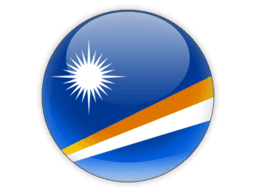
Regions of Marshall Islands
Explore 33 regions
Cities of Marshall Islands
Discover 24 cities across 24 regions
Ailinglaplap Atoll(1)
Ailuk Atoll(1)
Arno Atoll(1)
Aur Atoll(1)
Ebon Atoll(1)
Enewetak Atoll(1)
Jabat Island(1)
Jaluit Atoll(1)
Kili Island(1)
Kwajalein Atoll(1)
Lae Atoll(1)
Lib Island(1)
Likiep Atoll(1)
Majuro Atoll(1)
Maloelap Atoll(1)
Mejit Island(1)
Mili Atoll(1)
Namdrik Atoll(1)
Namu Atoll(1)
Rongelap Atoll(1)
Ujae Atoll(1)
Utrik Atoll(1)
Wotho Atoll(1)
Wotje Atoll(1)
The Marshall Islands, officially the Republic of the Marshall Islands, is a country located in the Pacific Ocean. It is made up of two chains of islands and atolls, which stretch over an area of approximately 750,000 square miles.
The capital city of the Marshall Islands is Majuro, which is located on the Majuro atoll. Other major population centers include Ebeye, Wotje, and Jaluit.
The economy of the Marshall Islands is primarily based on subsistence agriculture, fishing, and the export of marine resources. The country receives significant economic assistance from the United States, as it was a former U.S. territory.
The official languages of the Marshall Islands are Marshallese and English. The majority of the population is Christian, with the largest denomination being the United Church of Christ.
The Marshall Islands is known for its beautiful beaches and coral reefs, which make it a popular destination for scuba diving and snorkeling. Visitors can also explore the country's history by visiting cultural sites and museums, such as the Alele Museum and Public Library in Majuro.
The Marshall Islands is also known for its role in nuclear testing during the Cold War. The United States conducted over 60 nuclear tests on the Bikini and Enewetak atolls between 1946 and 1958. Today, visitors can visit Bikini Atoll and see the remains of the ships and buildings that were destroyed during the tests.
Travelers to the Marshall Islands must have a valid passport and visa, as well as proof of onward travel. The country has limited medical facilities and visitors should ensure they have comprehensive medical insurance before traveling. The best time to visit is between December and April, which is the dry season.
Telephone Code
692
Local Emergency Phone
Ambulance: 625, 4111; Police: 625, 8666
Vaccinations
Cholera vaccination is required for those travelling from an infected area. See WHO recommendations.
Climate
Tropical; hot and humid; wet season May to November; islands border typhoon belt
Currency (Code)
US dollar is used (USD)
Electricity/Voltage/Plug Type(s)
120 V / 60 Hz / plug types(s): A, B
Major Languages
Marshallese; note: English, widely spoken as a second language
Major Religions
Protestant 80.5%, Roman Catholic 8.5%, Mormon 7%, Jehovah's Witness 1.7%
Potable Water
Opt for bottled water
International Driving Permit
Suggested
Road Driving Side
Right
Tourist Destinations
Bikini Atoll Nuclear Test Site; Kwajalein Island; Alele Museum
Major Sports
Soccer, baseball, softball
Cultural Practices
The people of the Marshall Islands emphasize respect for their elders. Codes of respect and deference are important, and often Americans are considered haughty, brash, and irreverent.
Tipping Guidelines
Meals are generally inexpensive so tipping by rounding up is appropriate. Taxi drivers do not expect tips.
Souvenirs
Coconut products, seashells/seashell items; woven handbags, baskets, and carpets; stick-chart sea maps, recreational boats
Traditional Cuisine
Barramundi cod — a whole fresh barramundi cod seasoned and then tightly wrapped within banana leaves and baked
Geography
Area
total: 181 sq km
land: 181 sq km
water: 0 sq km
Climate
tropical; hot and humid; wet season May to November; islands border typhoon belt
Natural resources
coconut products, marine products, deep seabed minerals
People and Society
Population
80,966 (2023 est.)
Ethnic groups
Marshallese 92.1%, mixed Marshallese 5.9%, other 2% (2006 est.)
Languages
Marshallese (official) 98.2%, other languages 1.8% (1999 est.)
Religions
Protestant 80.5% (United Church of Christ 47%, Assembly of God 16.2%, Bukot Nan Jesus 5.4%, Full Gospel 3.3%, Reformed Congressional Church 3%, Salvation Army 1.9%, Seventh Day Adventist 1.4%, Meram in Jesus 1.2%, other Protestant 1.1%), Roman Catholic 8.5%, Church of Jesus Christ 7%, Jehovah's Witness 1.7%, other 1.2%, none 1.1% (2011 est.)
Population growth rate
1.3% (2023 est.)
Government
Government type
mixed presidential-parliamentary system in free association with the US
Capital
name: Majuro; note - the capital is an atoll of 64 islands; governmental buildings are housed on three fused islands on the eastern side of the atoll: Djarrit, Uliga, and Delap
Economy
Economic overview
upper middle-income Pacific island economy; US aid reliance; large public sector workforce; produces coconut oil as a substitute to diesel fuel; becoming offshore banking locale; fishing rights seller; import-dependent
Real GDP (purchasing power parity)
$250.694 million (2021 est.)
Real GDP per capita
$6,000 (2021 est.)
Agricultural products
coconuts
Industries
copra, tuna processing, tourism, craft items (from seashells, wood, and pearls)
Exports
$76.734 million (2020 est.)
Exports - partners
Poland 28%, Denmark 19%, South Korea 13%, Indonesia 10%, Cyprus 6% (2019)
Exports - commodities
ships, fish, recreational boats, broadcasting equipment, coal tar oil (2019)
Imports
$171.201 million (2020 est.)
Imports - partners
South Korea 39%, China 27%, Japan 15% (2019)
International Airports in Marshall Islands
Discover 2 major airports serving Marshall Islands
Mark Marshall Islands as Visited
Add Marshall Islands to your personal travel map and track your journey around the world. Share your adventures and see your progress grow!